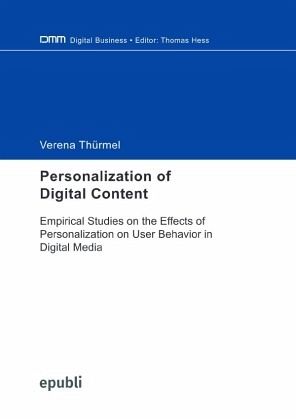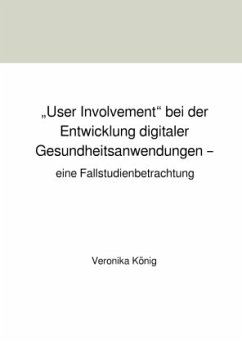
Personalization of Digital Content: Empirical Studies on the Effects of Personalization on User Behavior in Digital Medi
Versandkostenfrei!
Versandfertig in 6-10 Tagen
29,99 €
inkl. MwSt.

PAYBACK Punkte
0 °P sammeln!
In recent decades, the media industry has undergone a digital transformation, resulting in the ubiquity of digital media in our daily lives. At the same time, technological advances have enabled firms to collect and analyze user data and derive detailed information about users' needs and preferences. As a result, media companies can gain extensive insights into their customers' interests, consumption patterns, personality traits, or social interactions, opening up the opportunity to personalize the user experience. While technology-savvy firms are already embracing this opportunity and persona...
In recent decades, the media industry has undergone a digital transformation, resulting in the ubiquity of digital media in our daily lives. At the same time, technological advances have enabled firms to collect and analyze user data and derive detailed information about users' needs and preferences. As a result, media companies can gain extensive insights into their customers' interests, consumption patterns, personality traits, or social interactions, opening up the opportunity to personalize the user experience. While technology-savvy firms are already embracing this opportunity and personalizing large parts of the user experience, others are still figuring out if and how to implement content personalization. However, even established firms face challenges, such as mitigating users' perception to be misunderstood or choosing appropriate personalization approaches. Therefore, this dissertation investigates how personalized recommendations and their design cues affect user behavior in media settings in four empirical studies. The results provide practitioners with insights into the economic consequences of content personalization and guidelines for delivering a compelling personalized user experience.












